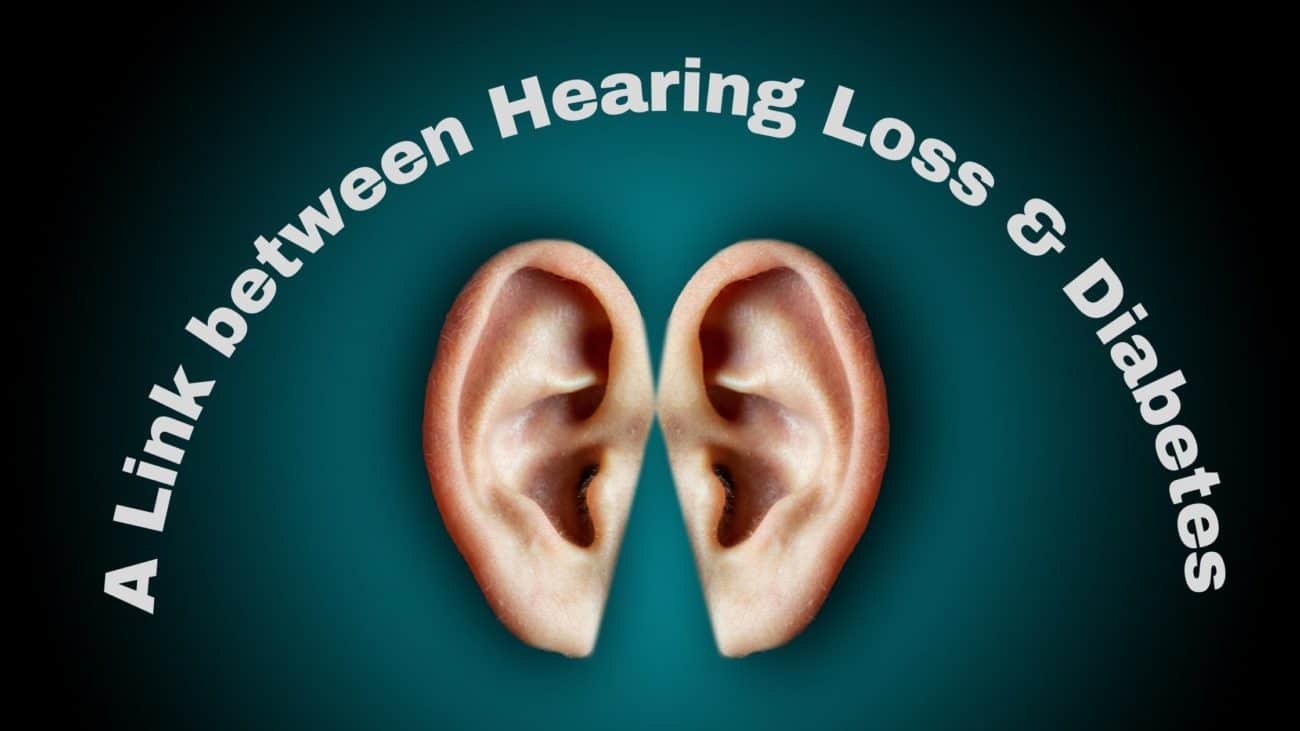- Fine-Tuning Your Hearing Aids for the Best Listening Experience - June 7, 2025
- Everyday Sounds That May Be Making Your Tinnitus Worse - May 7, 2025
- The Hidden Dangers of Everyday Noise and How to Stay Safe - April 9, 2025
People with diabetes are more likely to experience hearing loss compared to people without diabetes. Numerous studies have shown a significant correlation between both conditions which impact older adults disproportionately. According to the American Diabetes Association, over 30 million people have diabetes in the U.S., which is nearly 11% of the population. The number of people living with diabetes continues to increase with 1.5 people being diagnosed each year.
Diabetes is a chronic medical condition that impacts how the body produces energy from food. Food is broken down into sugar (or glucose) which enters the bloodstream. The pancreas releases insulin, a hormone, to help convert glucose into energy for the body. Diabetes describes an insufficient amount of insulin production or the body not using insulin effectively. This causes excess sugar to remain in the bloodstream which has various health risks including developing hearing loss.
Understanding Hearing Loss
Hearing loss is the third most common chronic medical condition that people navigate today. According to the National Institute on Deafness and Other Communication Disorders (NIDCD), nearly 1 in 8 people (ages 12 and older) have some degree of impaired hearing. Affecting over 48 million people in the U.S., hearing loss is a public health epidemic. There are various causes that contribute to the development of hearing loss including:
- existing medical conditions: including cardiovascular disease, diabetes, hypertension, strokes, etc.
- genetic history: family history of hearing loss can increase the likelihood of its development
- environmental exposure to loud noise: one time or consistent absorption of loud noise can damage hearing permanently
- aging: the natural aging of the auditory system can affect hearing over time
Hearing loss results in a reduced ability to absorb and process sound which produces a range of symptoms that can disrupt daily life. These symptoms strain communication which has far-reaching effects on overall life: impacting relationships, job performance, social life, and mental health. Untreated hearing loss can also increase the risk of developing other conditions including cognitive decline and accidental injuries.
Hearing Loss & Diabetes
Research on the link between hearing loss and diabetes dates back several decades. Numerous studies have identified a correlation between both health conditions. Major research includes a study published in 2008 which was conducted by the NIDCD. Researchers examined data collected by the Centers for Disease Control and Prevention (CDC) from 1999 – 2004. This data included results from hearing tests and responses to a questionnaire that assessed diabetes. This study included 11,405 participants ages 20 – 69 and the findings showed that adults with diabetes were also more likely to have hearing loss. Specifically:
- Low-Mid Frequency Hearing Loss:
- 21% percent in adults with diabetes
- 9% in adults without diabetes
- High-Frequency Hearing Loss:
- 54% percent in adults with diabetes
- 32% in adults without diabetes
These findings reveal that diabetes is a significant risk factor for hearing loss. Though it largely remains unclear how exactly diabetes can contribute to hearing loss development, researchers have suggestions. Diabetes impacts the blood vessels and nerves in the body, this includes in the inner ear. The inner ear houses the cochlea which consists of thousands of hair cells and fluid which help translate incoming soundwaves into electrical signals. These signals then travel through auditory pathways to the brain where they are further processed and assigned meaning; enabling us to understand what we hear. The restriction of blood vessels can disrupt this process by not providing the inner ear with adequate blood flow and oxygen to carry out its functions.
Treating Hearing Loss
If you have diabetes or are predisposed to its development, it is important to prioritize your hearing health. A useful way to do this is to have your hearing tested regularly. Conducted by our expert hearing professionals, hearing tests involve a painless process that measures hearing ability in both ears. This identifies any impairment and the degree of hearing loss you could be experiencing. Fortunately, there are useful ways to treat hearing loss. The most common treatment is hearing aids which are electronic devices that provide ample support. This maximizes hearing capacity, strengthening communication and improving overall quality of life!

